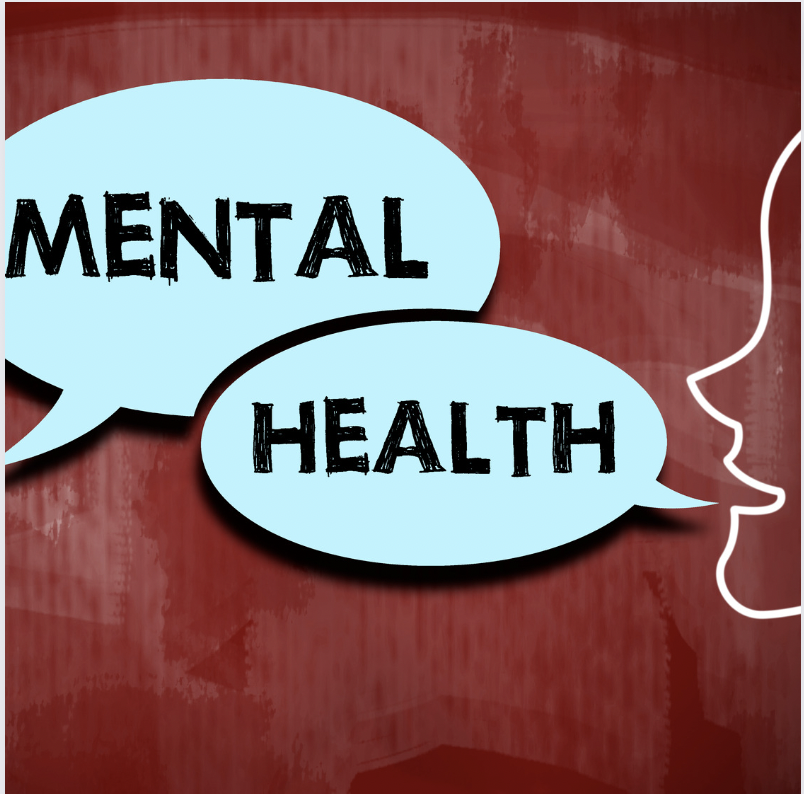A long weekend is on the horizon. Wishing everyone a peaceful Memorial Day as we remember the men and women of our armed forces!
BIGGEST COLLEGE-RELATED NEWS OF THE WEEK
APPLICATION CHANGES AT UNIVERSITY OF MICHIGAN
The University of Michigan is always a popular choice for our students, and the school just announced some changes to the upcoming 2024-2025 application process. In addition to introducing a new B.S. program in Pharmaceutical Sciences and a new timeline for Urban Technology students, the change that will have the biggest impact on our applicants has to do with direct-entry admission to the Ross School of Business.
For those who are not aware, admission to Ross is VERY competitive. Previously, students were required to apply simultaneously for first-year admission to the College of Literature, Science, and the Arts and preferred admission to Ross. Those accepted to LSA would then undergo the Ross review process, but a student would not be rejected from the university as a whole if they were otherwise admissible to LSA. Now, students who are not directly admitted to Ross will not be admitted to LSA–they will simply be outright denied from the university.
This was just announced yesterday, and my understanding is that we do not yet know if the Ross application will continue to require a business portfolio, or if first-year applicants that didn’t initially apply to Ross will continue to have a leg up in the internal transfer process. Personally, I would suggest that first-year out-of-state applicants bypass Ross unless they have extremely high grades, test scores, and course rigor, as well as extensive business experience.
ANOTHER VOTE OF NO CONFIDENCE AT A HIGH PROFILE UNIVERSITY
Columbia University President Minouche Shafik received a vote of no confidence from a portion of the undergraduate faculty. While there is no legal penalty, it does show that support for her is waning. The faculty who voted were from the school of Arts and Sciences, the largest of the 21 schools at the university, and make up about 20% of the full-time faculty. Faculty who did not support the vote of no confidence believe that Shafik did the best she could in a difficult situation.
UNIVERSITY OF CALIFORNIA WORKERS AUTHORIZE A CALL TO STRIKE
The 48,000-member union that encompasses ten UC campuses and the Lawrence Berkeley National Laboratory authorized their union to call for a strike in response to their disapproval of how the university handled the recent student protests. The strike authorization vote, which passed with 79% approval, came two weeks after student protesters were attacked by counter protesters without any police intervention or arrests. Later, riot police tore down the student encampment and arrested over 200 of those protesters.
KANSAS CITY CHIEFS BUTKER FACES BACKLASH AFTER COMMENCEMENT SPEECH
NFL kicker Harrison Butker delivered a stunning commencement speech at Benedictine College, in which he declared that a woman’s sole vocation was to be a wife and mother, among other things. The Sisters of Mount St. Scholastica, the founders and sponsors of the college, released a statement in response that surprised many. The nuns left no doubt that they wholeheartedly disagree with Butker, not only about his views on women and their role in society, but also with his views of what it means to be Catholic.
UNIVERSITY OF CONNECTICUT MAKES A CHANGE
So far, it has been mostly private colleges and universities that have allowed students to declare their love for a particular school through their willingness to forsake all others if admitted Early Decision. Only a very small handful of public universities across the country offer the Early Decision option. And now we can add one more to that small handful: The University of Connecticut. While UConn is not a typical choice for students from our region, it is a great school–considered one of the top public research institutions in the U.S. As an out-of-state student, ED can be a significant advantage! As a refresher, ED is considered a “binding” in that students and their parents sign legally-binding contracts in the application materials, promising to attend the school if admitted.
WHAT DID YOU CALL ME?
Students graduating from Thomas Jefferson University in Philadelphia last week had a slightly confusing time as they waited to walk up on stage to collect their diplomas. The person reading their names managed to mangle them so badly that students didn’t always recognize when they were being called up! The university official was reading from a list of phonetically spelled names that seemed to have no relationship to the actual names. One of the mis-pronounced names: Thomas! 🤷
BEST ARTICLES OF THE WEEK
As the school year comes to a close and students make their summer plans, a number of students will begin a summer job. For some, it may be returning to a place they have worked before, and for many others, this will be their first “real” job. Having a job will teach teens a lot of wonderful skills and life lessons about responsibility, time management, customer service, and how to take direction and constructive criticism in a mature manner. But sometimes the experience can be far more dangerous and scary. This article in the Wall Street Journal, The Surge in Young Workers Has a Dark Side: Sexual Harassment of Teens on the Job brings home the harsh realities some of our kids experience. “Young workers ‘often don’t know they have a right to say, ‘This isn’t OK,’ ‘ said Kimberly Rauscher, a professor of public health at Boise State University and one of the authors of the study." Even more concerning, Raucher noted that some teenagers feel “that sexual harassment is simply an odious but inevitable part of the job, especially in customer-facing roles.” As employers rely on more young workers, it’s important to have a serious discussion with your teen about what to do if they feel unsafe in their workplace. Encourage them to speak up, either to their supervisor or a trusted family member, without fearing that adults will not believe them.
As young people reflect on their future, some may be thinking about our robot overlords (kidding!) or at least about the role artificial intelligence will play in their lives. It’s already bumping up against so much of what we know and do right now–literature, research, art, science, manufacturing–and so it’s only natural to believe that it will become even more entwined in our lives in the future. Some schools have tried to ban the use of AI and software like ChatGPT in the classroom, and other schools have embraced the technology in an effort to help students learn how to wield it as an effective tool: beyond a way to simply get a robot to do their homework! AI has the power, if used right, to make peoples’ lives better and richer, perhaps even keeping bits of humanity from disappearing altogether.
As this years’ admission cycle comes to an end and students have chosen which institution they wish to attend–though thanks to the FAFSA snafu, some are still waiting to make that decision–thoughts are turning towards next year’s cycle and beyond. Each year, colleges and universities decide their criteria for admission, some of which they share (how they use holistic review to read an application) and some of which they hold a little closer to the vest–their “institutional priorities”. One of those items that they do share is their stance on standardized tests, the SAT and ACT. Right now, many schools are still test-optional, and some even test-blind, meaning that they don’t even accept or look at tests, but some are now once again requiring tests as part of a student’s application. The latest of these schools are several public colleges and universities in the state of Georgia. The University System of Georgia Board of Regents voted to rescind the temporary waiver of test scores they had put in place during the height of Covid-19. There will now be a minimum SAT and ACT score required at seven schools: the University of Georgia, Georgia Tech, Georgia State University, Georgia College and State University, Augusta University, Kennesaw State University, and Georgia Southern University. This requirement will begin in the fall of 2026.
It was unfortunate that just a few weeks prior, Georgia State University in Atlanta accidentally sent congratulatory admissions letters to 1,500 applicants who were not admitted, at least not yet. The same university made this same error with 1,300 students in 2018. Talk about a roller coaster of emotions!
The question of whether test scores help or hinder a student’s application or how colleges use scores in the admissions process is part of an ongoing debate as colleges ponder their testing policies. This article offers a deeper dive into that debate and asks questions about the future of test-optional admissions. Bob Schaeffer, public education director at the standardized testing reform organization FairTest, points out that with “over 1,900 schools extend[ing their] test-optional or test-free policies” and another “1,700 institutions hav[ing] test-optional and test-free policies with no expiration date”, it’s a question worth asking.
OFFICE HAPPENINGS
I started my college counseling career working at an independent school in a New York City suburb, and I still find it interesting to reflect on how regional preferences can impact college choices. There are certain “go-to” schools for kids in that area that students here rarely consider, and vice versa.
A great example of one of those schools is Fairfield University — in the Northeast, this is a practically given on every college list for kids who are interested in schools like Georgetown, Boston College, Notre Dame and Villanova - particularly if they want to pursue business or nursing. Yet for some reason, it doesn’t make a lot of lists here. When I was in Connecticut at the IECA conference, I decided to tour Fairfield for the first time in a number of years, and I have to say — this is really a hidden gem for DC students.
With approximately 5,000 students, Fairfield is a mid-sized Jesuit institution located in a beautiful New York City suburb. As are other Jesuit schools, Fairfield is dedicated to educating the whole person; however, it does a great job of blending that commitment (alongside its core curriculum) with excellence in pre-professional fields.
Rankings aren’t everything, but Fairfield is consistently named among the top 30 schools in the country for “Best Undergraduate Teaching” by U.S. News & World Report - it’s currently tied at #28 with Tufts and UNC-Chapel Hill. They have a similar placement in the publication’s “Best Undergraduate Business Programs” rankings, in the fields of Business Analytics (#16), Marketing (#17), Finance (#17) and Accounting (#28). There are approximately 20 students per class, so everyone really does get a lot of individualized attention.
Students live on campus for their first three years, and I found the campus to be particularly pretty — it’s not the newest you’ll see, but it’s so well-maintained and pristine, with lots of grass, trees and red flowers everywhere. And in addition to the ability to get into Manhattan in just over an hour, the best part of Fairfield’s location is the proximity to the BEACH! It’s located less than a mile from the Long Island Sound beaches, and students have so many fun traditions involving the beach — yes, even in the winter! Seniors traditionally live in beach houses off campus, which they all love (I took this picture at Jennings Beach, right near where most of the seniors live).
If you’re interested, check out the “Why Fairfield?” video on the school’s website and consider attending a virtual information session!















